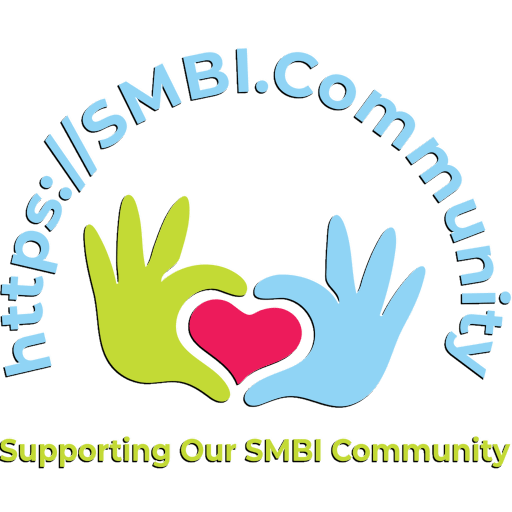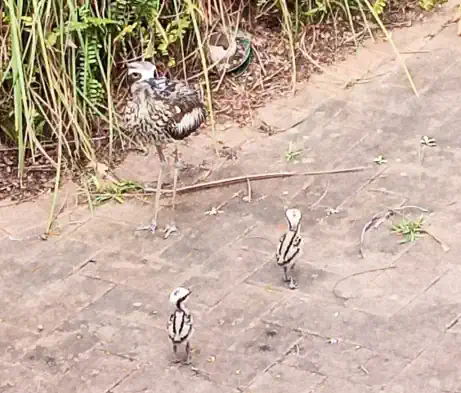SMBI Wildlife
Find us on Facebook
Threats To Our Wildlife
There are unfortunately a large number of threats to our SMBI Wildlife that are making a significant impact on the health and wellbeing of many species.
Human Activities – Please be aware that we live in the Moreton Bay Marine Park and boating, fishing and similar activities need to be done with our wildlife in mind. Also, when it comes to driving on SMBI, SLOW DOWN FFS – it isn’t a race track!
Accidental Poisoning – Please be very careful when laying out any form of poison – we have a number of native rodents, other small mammals and birds that may also suffer the effects of these baits. Please have a read of Rat Control and Local Wildlife for some more information where it explains the difference between First Generation Rodenticides (acceptable) and Second Generation Rodenticides (bad).
Pets – On SMBI (and in the rest of the Redland City LGA) you are required to keep your dog or cat in your property. This will greatly help in protecting our SMBI Wildlife, as well as protecting your beloved pets. Please have a read of the Redland City Council’s “About dogs and cats” page for more information on your responsibilities as a pet owner. Information on Pets and Ticks.
SMBI And Our Wildlife
The Southern Moreton Bay Islands and surrounding waters are home to a wide range of wildlife.
The most obvious and probably most commonly encountered is the Bush Stone-Curlew which is a ground-dwelling bird and can be seen on our roads and in our yards right across the islands (not to mention heard right through the night). Other native birds are the pied oystercatcher, red-capped plover, beach stone-curlew (vulnerable), sooty oystercatcher (vulnerable), Australian white ibis, magpie, currawong, kookaburra, boobook owl, tawny frogmouth and a number of other bird species. We also have the rare and threatened Glossy Black Cockatoos here.
We have a number of small mammals here, especially the bandicoot (fairly common) and also the water mouse (vulnerable), common brushtail possums (Russell and a few on Macleay), as well as a few bat colonies.
There are a number of lizards, geckoes and also some quite large (up to around 1.5m) monitors.
There are a few wallabies on Russell Island, but the numbers are decreasing due to the increasing road traffic.
As far as snakes go, we have mostly pythons, small eyed snakes and whip snakes.
We have a number of turtles, whales, dolphins, dugongs and other marine wildlife species that visit us. If you see a turtle that is injured, dead or in distress, please call Turtle Rescue or Seaworld Rescue ASAP.
Contact our Licensed Wildlife Carers
Please note that our wildlife carers are volunteers and have other family, community and work commitments. If you place a call to a wildlife carer, please leave a message and follow this up with an SMS regarding the issue. If you don’t get a call back soon, please contact someone else on this list. Not all volunteers are available at all times. If you get no response, please call Redlands Wildlife to arrange ferry transport and pickup from the Redland Bay Marina.
Also please note that to assist the volunteer carers, where at all possible you will be asked to drop the animal concerned at either the nearest vet or an available wildlife carer’s residence. At no time are animals to be left at a carer’s residence without the prior approval of the particular carer.
| Location | Name | Phone |
| * | Wildlife Carers | * |
| Macleay | Jesse Rowcroft Snake Rescue & Relocation | 0423 710 889 |
| Macleay | Steve Smiff Marsupials, Reptiles, Raptors, Turtles | Currently unavailable |
| Macleay | Hilton Travis Bandicoots, Birds Small Mammals | 0444 525 659 |
| Macleay | Leah Zaki Bird Rescue | 0402 149 607 |
| Russell | Bella Curlew Birds, Possums | 0401 948 899 |
| Russell | Michele McCarthy Birds, Macropods | 0411 267 612 |
| Russell | Trish Harris Frogs, Lizards, Non-Venomous Snakes | 0417 049 853 |
| * | Wildlife Organizations | * |
| Mainland | BARN Wildlife Care | 0405 056 066 |
| Mainland | Redlands Wildlife Rescue | 07 3833 4031 |
| Mainland | Wildcare Emergency Hotline | 07 5527 2444 |
| Mainland | Wildlife SEQ Inc | 0468 484 994 |
| * | Specialist Wildlife Orgs | * |
| BAT RESCUE | BCRQ Bat Phone | 0488 228 134 |
| TURTLE RESCUE | Dept Env & Science Qld Gov | 1300 130 372 |
| Seaworld | Marine Animal Rescue (9-5) | 07 5588 2222 |
| Seaworld | Marine Animal Rescue A/Hrs | 07 5588 2177 |
| * | Snake Removal | * |
| Macleay Snakes | Jesse Rowcroft | 0423 710 889 |
| Russell Snakes | Jasmine Martinez | 0479 013 480 |
| Russell Snakes | Trish Harris | 0417 049 853 |
| * | Veterinarians | * |
| Macleay | Bay Islands Vet Service | 07 3409 4962 |
| Russell | Russell Island Vets | 07 3207 7325 |
| Home Visit | VetCare2U | 1300 164 948 |
| Redland Bay | Veterinary Happiness | 07 3206 7911 |
| * | Pet Transport | * |
| Pet Transport | Manly Rd Vet Keith/Michael | 0407 771 330 |
Report Injured Wildlife…
If you have seen injured or killed wildlife, please use your QR Code scanning app (quite possibly just your Camera app on Android and iOS devices) to scan the QR Code on the right or click on this link to access the Form to report this so we can build up data on the locations and types of wildlife injuries across SMBI. Without data, it will be extremely unlikely to government support for our precious wildlife.
If the animal(s) are still alive, please call a vet or wildlife carer first to have the injured wildlife assisted as best as possible.
Interested in Wildlife Care?
If you are interested in volunteering for wildlife care, feel free to contact us. There are always openings, and training is offered in various locations around South East Queensland.
To find out more, first have a read of the Queensland Government, Department of Environment a Science Rescue and rehabilitation site.
All people rescuing and caring for wildlife in Queensland should have a read of Code of Practice—Care of sick, injured or orphaned protected animals in Queensland to ensure they are working within the bounds of the Law and to ensure safety of all involved, including the animal(s).
For most species of protected animals you must, within 72 hours, notify a conservation officer who is an officer of the department that you have taken possession of the animal, unless you give it to a veterinary surgeon or licensed wildlife carer.
I’m Interested
Please let me know more about what’s needed to be able to care for our SMBI wildlife.


